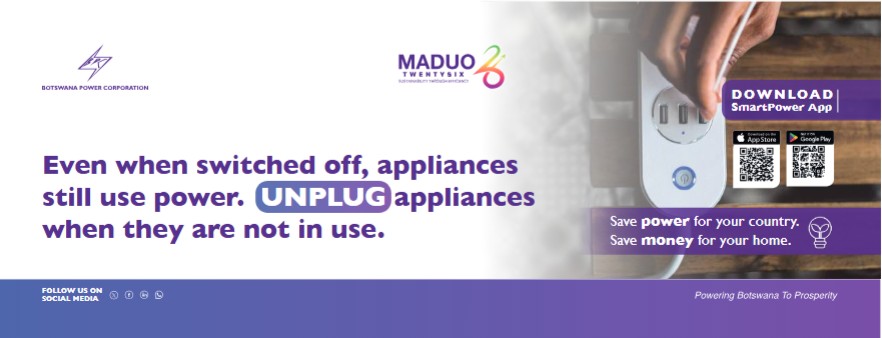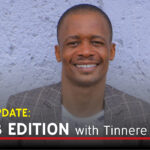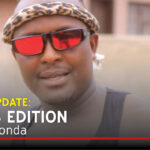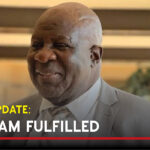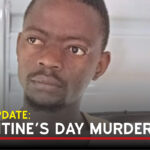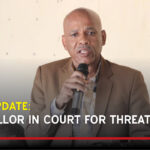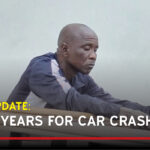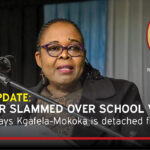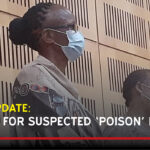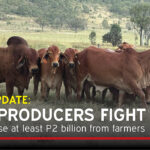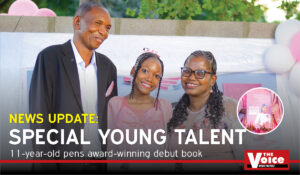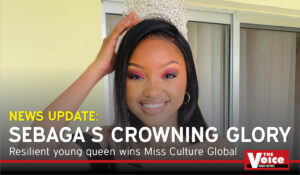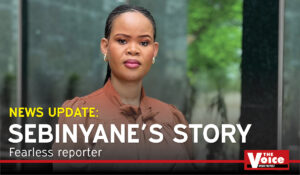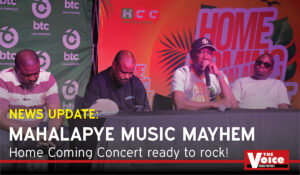BOCONGO comes calling
For the best part of 13 years, Monametsi Sokwe has been a leading light in the country’s civil society.
The 39-year-old’s passion for people saw him appointed to the top of Botswana Council of Non-Governmental Organizations (BOCONGO) as its Executive Director earlier this month.
It means that a journey which started back in 2007 with the National Aids Coordinating Agency (NACA) – now the National Aids and Health Promotion Agency (NAHPA) – has reached exciting new heights.
In an exclusive interview with The Voice’s KABELO ADAMSON, the Maun native outlines his plans for BOCONGO and the legacy he hopes to leave behind.
Q. Firstly, massive congratulations on your appointment as the Executive Director of BOCONGO.
Thank you. It’s a great honor to serve Batswana in this capacity and I am very happy to lead the civil society!
Q. You are not new to the civil society; briefly take us through your journey.
I started my career with the National Coordinating Agency (NACA) from 2007 until 2009 before I joined Tebelopele as Senior Monitoring and Evaluation Manager from 2009 to 2011.
Around November of the same year, I left Tebelopele to join Ngami Council of Non-Governmental Organizations (NCONGO) as an Executive Director before I left in 2017.
Q. …and from there?
From there I worked for the United States Agency for International Development (US Aid) where I spent 18 months, between 2017 and 2019, working as a Senior Project Management Specialist.
From there I took a break doing small businesses and farming.
As time went on, I realized my passion still lies with the civil society and when this opportunity arose, I took it with both hands.
Q. Are you proud of the legacy you left at NCONGO?
I am very happy because when I arrived at NCONGO I found an office that lacked the resources and had to start from scratch.
Today the office is fully equipped and even now if you can go there, the NGO is going strong and is very attractive.
The achievements that we have are many because at first most people did not appreciate the role of the NGO in the region.
So yes I am very proud of my track record at NCONGO!
Q. Working in civil society, what are the main challenges you have come across?
The main challenge that the civil society in Botswana and the rest of Africa face is mostly to do with leadership.
What I have realized over time is that in Africa we have leaders who are not welcoming to the civil society.
If they were welcoming, they would want a civil society that can point out the wrongs that they do or call them out.
So that is one challenge that we face because we are mostly seen as a hostile force instead of a unifying force of development.
Of course, we can also talk about funding which is another challenge that civil society has to contend with.
The government is trying but it is not enough and funding from international donors is also limited.
Q. Do you believe the role of civil society is still relevant?
The civil society is now more relevant than ever because when a country like ours is caught up in the upper-middle-income trap, there is a lot that is happening.
There is a lot of poverty in this country, a rise in Gender-Based Violence, escalation of crime and a rise in inequality.
All this calls for civil society to be more active than ever, and we cannot forget corruption as well.
I must admit that as the civil society, we have not been vocal enough in these matters.
What we need to do now is to revamp and look at what communities need and how we can work together with government.
There is also going to be retrenchments post the State of Emergency.
Many families are going to be affected as people lose their primary source of income.
As the civil society, we need to prepare for that and come together as NGOs, churches and communities leaders to look at how we can assist our communities and create a safety net.
Q. NGOs predominantly depend on donors, including the government. How do you create a balance between playing your role of advocacy and avoiding stepping on the toes of your donors?
We need to man up as a country and become a mature democracy right now! More than 50 years later [since Independence] we should not be apologetic for anything.
In terms of balancing between government funding some of our activities and advocacy, I do believe that when instances like that happen, the government has to be mature to realize that we are all in this together for Batswana and I want the NGOs out there to know that government funding is public funding.
So, if the state is going to gag you because you are funded through public funds, then it shows immaturity.
I do believe that if our government wants to move up in terms of the income status and also to show that it respects the rule of law, then it has to be mature.
Q. You mentioned that civil society also has a role to play in fighting corruption. The current administration has made fighting corruption one of its key focus areas – do you think we are on the right track?
I think it is a bit too early to judge. Having said so, we are still calling for the independence of corruption-fighting institutions like the Directorate on Corruption and Economic Crime (DCEC).
That would show that we are serious because as you know, the biggest procurement entity in this country is the government.
DCEC is a government department and cannot say the same government is corrupt; we find the whole arrangement self-defeating!
We see efforts being made but we want to see people charged for corruption – that would be one big example of how the President wants to fight corruption.
We do hope, as the civil society, that he lives up to it. We also acknowledge that maybe his efforts were hampered by Covid-19 which changed a lot of things.
Come to me next year then I will give you an honest opinion.
But as I said, the most important thing is to table motions in parliament calling for the independence of the oversight institutions and we are not seeing that yet.
Q. Recently we the civil society was noticeably quiet when the Minister of Nationality, Immigration, and Gender Affairs, Annah Mokgethi said the motion to request the President to set up a Commission of Enquiry on Gender-Based Violence was not urgent.
I think, Honorable Mokgethi was ill-advised in the way she approached it. Maybe she did not mean what she said!
But I would like to see more women be an advocate and come to a stage where they believe that issues of GBV are so urgent – indeed, for me they are more urgent than anything!
We need more women to support each other because the statistics show that they are the victims in most crimes.
Personally, I felt it was unfair the way she approached the issue.
Q. You have just been appointed the Executive Director of BOCONGO, what areas will you be focusing on?
My immediate focus is simple: we need to take BOCONGO where it needs to be – that is coordination.
We need to put our members at the center of dialogue and see a civil society that is responsive to societal issues.
We want to hear what the members are saying about corruption, GBV, issues in the region – an example being what was happening in Zimbabwe – and more on conservation.
To achieve that we have to bring in more of our members who want to achieve the same results that this organisation was set up to achieve.
At the moment, many NGOs are doing a good job, but their work is not visible because the secretariat is now amplifying those efforts
We need to bring back BOCONGO as an alternative voice and to achieve that we have to ensure that BOCONGO assumes its role at the center of coordination for the civil society in the country.
It goes to accountability too; we want to see a very accountable civil society which I believe we have been doing very well lately.
Q. How many members do you currently have and are you looking to increase the numbers?
As it is, our membership stands at 50. But what should happen is to get all the NGOs that want to achieve harmony, that wants to take the society forward, that want to put the national development ahead of everything and solve the problems faced by the society?
For me it is not about the numbers, it is getting members who are serious about what they are doing so that BOCONGO can play its role of coordination.
Q. How often is BOCONGO audited?
We have an annual audit that takes place every year before the Annual General Meeting (AGM) and currently, the auditors are in the field.
Q. You played a critical role in the transformation of arts in Ngamiland. What should we expect now that you have a bigger platform?
I am an artist and I like arts.
I am hoping that coming here is now an opportunity for us to nurture young budding artists and we are going to link our artists with the rest of the country.
Q. Finally, Thank God It’s Friday, what are your plans for the weekend?
Due to Covid-19, I will just be taking it easy but usually on weekends I hang out with my friends over some barbecue.
